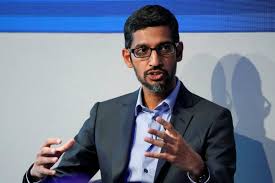NE BUSINESS BUREAU
NEW DELHI, DAVOS, JAN 29
Confident about Artificial Intelligence playing a much bigger role in tackling future pandemics, Sundar Pichai, CEO of Google and its parent company Alphabet, said on Friday these are still the early days of AI and its real potential will come into play in 10-20 years.
Speaking at the World Economic Forum’s virtual Davos Agenda Summit, he said COVID-19 itself has been a moment of reflection.
“While you see the horrible impact around the world, you also see the role technology plays in how the economy is still functioning around the world. The vaccine development is happening on a foundation of technological progress over the past many decades,” Pichai said.
Asked whether AI can help with the vaccine distribution, he said, “Today we have tools to help, could computing, machine learning, and algorithms. But these are still the early days of AI, and the real potential will come into play in 10-20 years.”
While there are countless examples of how AI was able to make sure people received the right information about COVID-19, this pandemic is a one-in-hundred-years global event and AI did not play a significant role in helping the world to navigate it, he said.
“AI will laying a foundation to tackle future problems and it can play a much bigger role in tackling future pandemics,” he added.
On public attitudes towards Big Tech, Pichai said there are real societal issues to be debated and what we need for a well-functioning society.
“I am glad there are conversations, including around potential regulatory approaches that would give clearer rules of the road. Large tech companies have an important role and responsibility to get this right,” he said.
No single country can solve a planetary issue. Just as the world has the Paris Agreement to tackle climate change, countries need to come together to solve the bigger and longer-term safety issues from technologies like AI and quantum computing, he said.
“As technology progresses with AI and quantum computing, we’re going to need additional frameworks like that to ensure safety for the planet,” he says.
When will quantum computing be available to a broader market, he said what can be seen over the next 3-5 years might be a ”quantum cloud” for some companies and developers to tackle early research problems.
“But it is early in the cycle, the potential is there, but we are on a 10-20 year journey to bring it to actual practical use,” he said.












